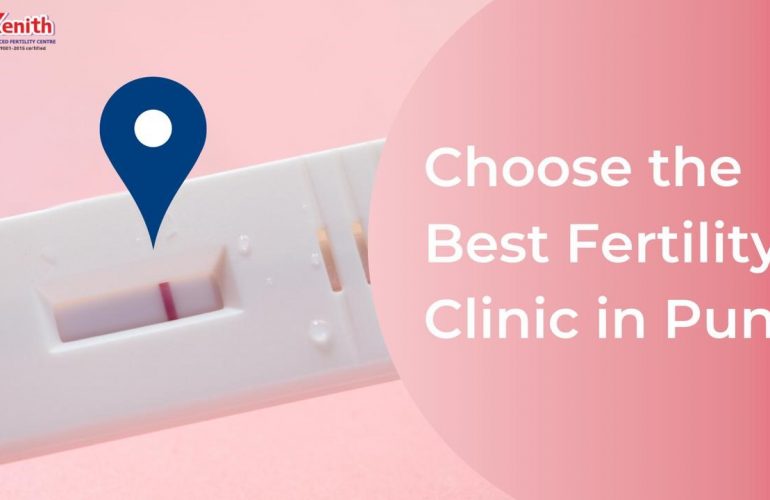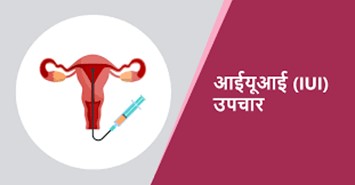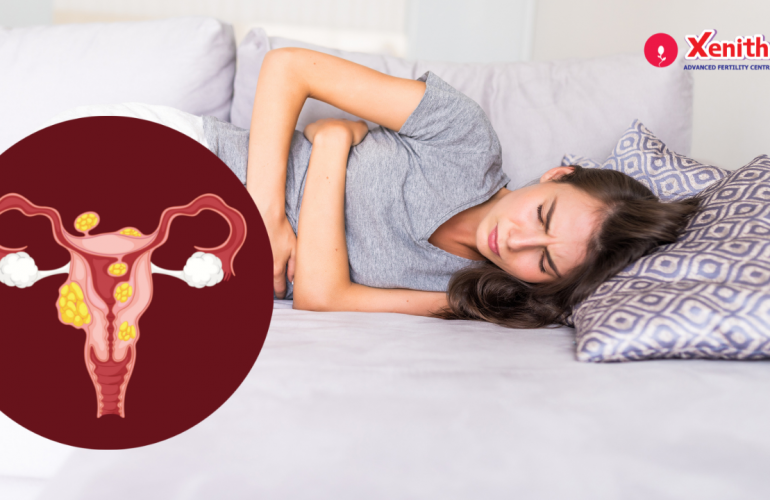Introduction
If you’ve been trying to conceive and haven’t seen those two pink lines yet, you’re not alone. Fertility struggles can be emotionally exhausting, especially when each month brings new hope followed by disappointment. One of the most important—yet often overlooked—factors in fertility is egg quality. Healthy eggs are essential for conception, embryo development, and a successful pregnancy.
As women age, egg quality naturally declines, primarily due to reduced mitochondrial function and increased oxidative stress in the ovaries. However, in recent years, a natural supplement called Coenzyme Q10 (CoQ10) has gained attention for its potential to support egg quality and overall fertility health.

Free Thursday Consultation
If you’ve been exploring ways to enhance your reproductive health—whether naturally or as part of fertility treatments like IVF—understanding how CoQ10 works could make a real difference in your journey.
What is CoQ10?
CoQ10, short for Coenzyme Q10, is a vitamin-like compound that your body naturally produces. It’s found in every cell and plays a critical role in generating cellular energy—the kind that powers your heart, brain, and yes, your eggs too.
You can think of CoQ10 as the spark plug for your cells. Inside each cell, tiny structures called mitochondria act as energy factories. CoQ10 helps these mitochondria convert nutrients into usable energy (ATP), which is essential for cell repair, growth, and overall function.
But CoQ10 isn’t just about energy. It’s also a powerful antioxidant, meaning it protects your cells from oxidative stress—the damage caused by free radicals. Over time, oxidative stress can harm eggs, sperm, and reproductive tissues, affecting fertility.
Although your body naturally produces CoQ10, its levels start to decline with age, especially after 30. That’s one reason why egg quality tends to decrease as you get older. Supplementing with CoQ10 may help replenish these levels and support your body’s natural reproductive functions.
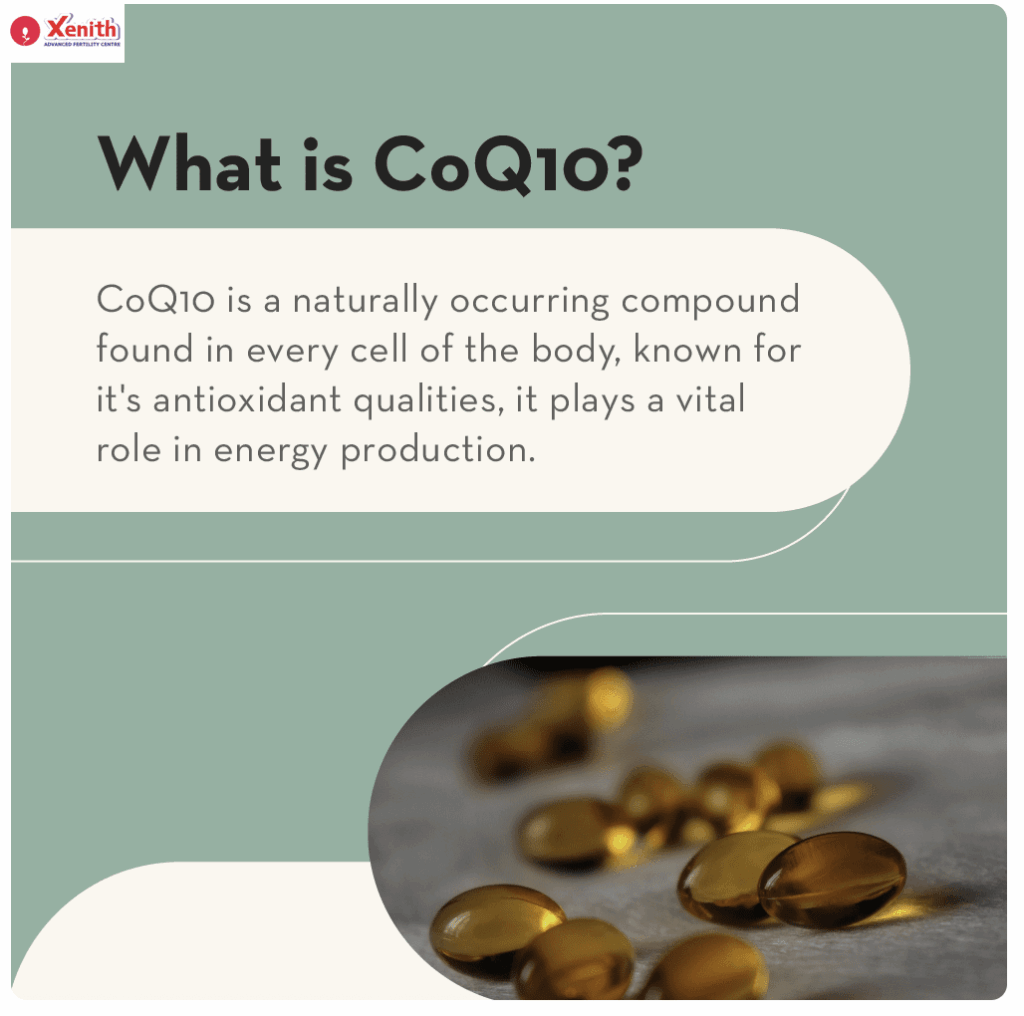
How CoQ10 Improves Egg Quality
Your eggs are among the most energy-demanding cells in your body. When an egg matures and prepares for fertilization, it needs a tremendous amount of energy to divide properly and form a healthy embryo. This energy comes directly from mitochondria—and that’s where CoQ10 steps in.
1. Boosting Mitochondrial Function
As you age, your mitochondria become less efficient. CoQ10 acts as a fuel source that keeps these mitochondria active and efficient, ensuring your eggs get the energy they need to mature correctly. Several studies have shown that supplementing with CoQ10 improves mitochondrial performance in aging eggs, potentially enhancing both egg quantity and quality.
For instance, a 2018 study published in Reproductive Biology and Endocrinology found that CoQ10 supplementation in women with decreased ovarian reserve improved ovarian response and embryo quality during IVF cycles.
2. Reducing Oxidative Stress
Oxidative stress is one of the biggest threats to egg health. It damages the egg’s DNA and cellular structures, leading to lower fertilization rates and increased risk of chromosomal abnormalities. CoQ10’s antioxidant properties help neutralize these free radicals, creating a healthier environment for egg development.
3. Supporting DNA Integrity
Healthy DNA in eggs is essential for embryo development. CoQ10 not only protects the egg’s DNA from damage but also supports DNA repair mechanisms, reducing the chances of embryo fragmentation and improving IVF success rates.
In short, CoQ10 supports your eggs at the cellular level—giving them the energy, protection, and resilience they need to thrive.
Dosage and How to Take CoQ10
If you’re considering taking CoQ10 for fertility, dosage and form matter.
1. Recommended Dosage
Most fertility specialists recommend 200–600 mg per day of CoQ10, divided into two or three doses. However, the exact amount can vary depending on your age, health condition, and fertility goals.
It’s always best to consult your fertility specialist before starting any supplement. They can help determine the right dosage and combination for your individual needs.
2. Forms of CoQ10: Ubiquinone vs. Ubiquinol
CoQ10 comes in two forms:
- Ubiquinone: The oxidized form, which your body must convert to ubiquinol before use.
- Ubiquinol: The active form, which is more easily absorbed and utilized by the body.
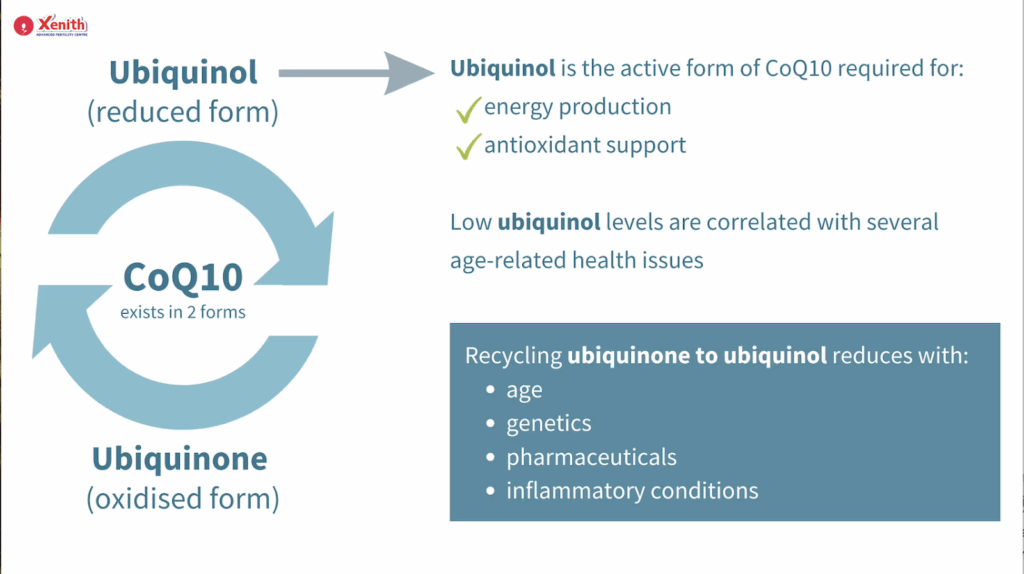
For fertility purposes, most experts recommend ubiquinol, as it’s more bioavailable—meaning your body can use it more efficiently.
3. How to Take It
CoQ10 is fat-soluble, so it should be taken with meals that contain healthy fats, such as avocado, olive oil, or nuts, for better absorption. Consistency is key—take it daily for at least 2–3 months before trying to conceive or undergoing IVF, as it takes time to improve cellular function and egg quality.
Other Benefits of CoQ10
While CoQ10 is often discussed in the context of female fertility, its benefits extend far beyond that.
- Improved Sperm Quality: CoQ10 also enhances sperm motility, count, and morphology by improving mitochondrial energy and reducing oxidative stress. It’s a valuable supplement for couples dealing with male-factor infertility as well.
- Heart Health: CoQ10 supports cardiovascular function by improving energy production in heart cells and lowering oxidative damage.
- Increased Energy and Vitality: Many people notice better stamina and reduced fatigue with regular CoQ10 supplementation.
- Better Skin and Cellular Health: Because of its antioxidant properties, CoQ10 also promotes healthier skin and slows signs of aging at the cellular level.
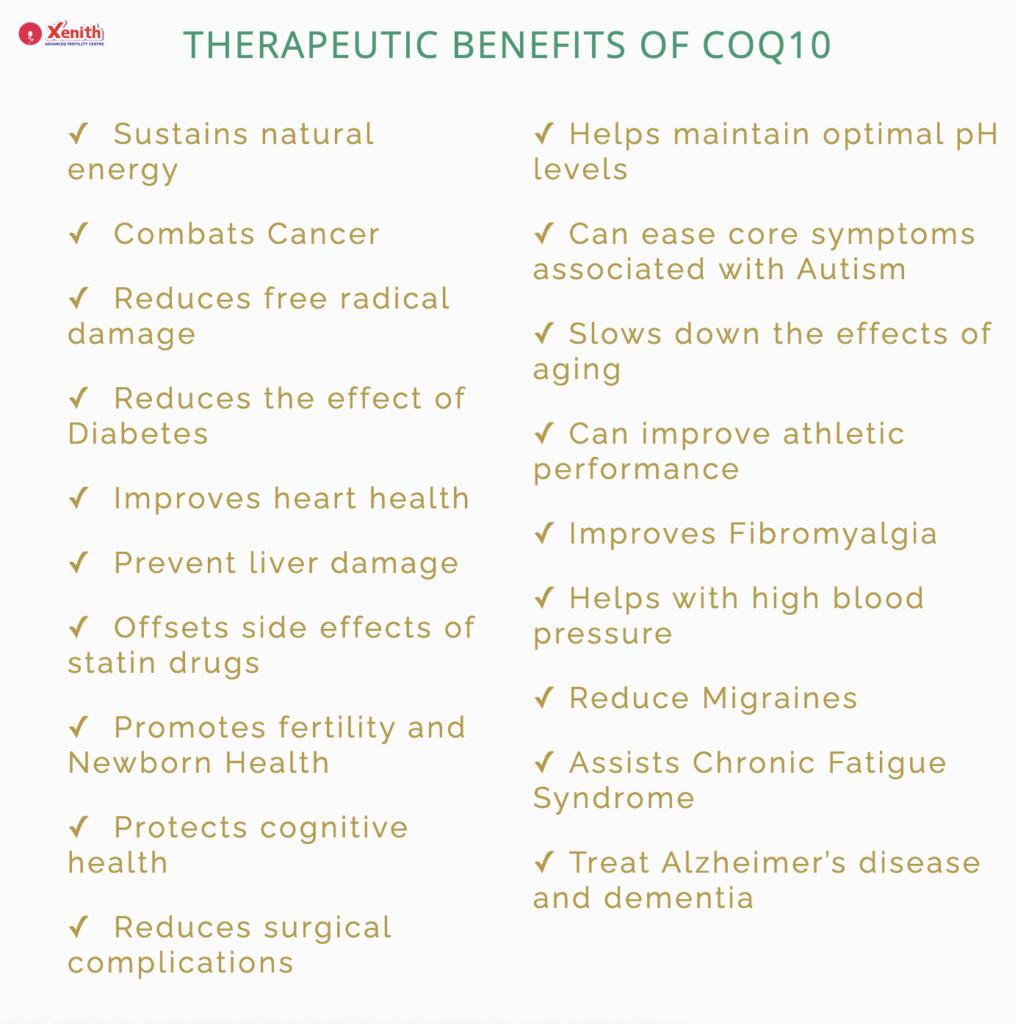
Conclusion
When it comes to fertility, egg quality matters just as much as egg quantity. And while you can’t change your age, you can support your egg health from within. CoQ10 offers a natural, science-backed way to enhance mitochondrial function, protect eggs from oxidative damage, and improve overall fertility potential.
However, supplements are never one-size-fits-all. Before starting CoQ10—or any fertility supplement—it’s essential to consult your doctor or fertility specialist. They can help personalize your plan, ensuring it aligns with your health profile and fertility goals.
With patience, consistency, and the right guidance, CoQ10 could be a valuable ally on your journey toward parenthood.
FAQ
CoQ10 is a natural antioxidant that boosts cellular energy and protects eggs from oxidative stress, helping improve egg quality and fertility outcomes.
Ubiquinol is the preferred form because it’s more easily absorbed and utilized by the body.
Ideally, take CoQ10 for at least 2–3 months before conception or IVF to allow enough time for cellular improvements.
CoQ10 is generally safe but may cause mild side effects like nausea or upset stomach in some people. Always start under medical supervision.
Yes, studies show CoQ10 enhances sperm motility, count, and morphology, benefiting male fertility.
Look for reputable brands that use ubiquinol and are third-party tested for purity and potency.
Generally, yes—but always confirm with your doctor before combining it with other treatments.
Foods like fatty fish, chicken, beef, spinach, broccoli, and nuts contain CoQ10, though dietary intake alone is often not enough for fertility benefits.
CoQ10 works at the cellular level, enhancing energy and reducing oxidative stress—complementing other nutrients like omega-3s, vitamin D, and folate.
In some cases, yes—especially if oxidative stress or egg quality issues are contributing factors. However, it’s important to discuss this with your fertility specialist first.


